-
 bitcoin
bitcoin $87959.907984 USD
1.34% -
 ethereum
ethereum $2920.497338 USD
3.04% -
 tether
tether $0.999775 USD
0.00% -
 xrp
xrp $2.237324 USD
8.12% -
 bnb
bnb $860.243768 USD
0.90% -
 solana
solana $138.089498 USD
5.43% -
 usd-coin
usd-coin $0.999807 USD
0.01% -
 tron
tron $0.272801 USD
-1.53% -
 dogecoin
dogecoin $0.150904 USD
2.96% -
 cardano
cardano $0.421635 USD
1.97% -
 hyperliquid
hyperliquid $32.152445 USD
2.23% -
 bitcoin-cash
bitcoin-cash $533.301069 USD
-1.94% -
 chainlink
chainlink $12.953417 USD
2.68% -
 unus-sed-leo
unus-sed-leo $9.535951 USD
0.73% -
 zcash
zcash $521.483386 USD
-2.87%
How to operate Bitcoin mining
Equipped with specialized ASICs, Bitcoin miners validate blockchain transactions and earn rewards by solving complex mathematical problems that secure the network's integrity.
Jan 09, 2025 at 10:36 pm
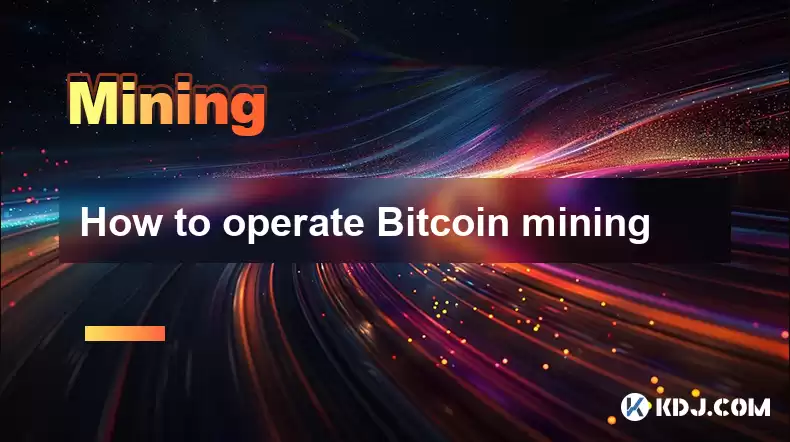
- Understanding the Basics of Bitcoin Mining
- Securing Necessary Hardware and Infrastructure
- Configuring Mining Software and Joining a Pool
- Monitoring and Troubleshooting Mining Operations
- Profitability Considerations and Strategies
Bitcoin mining is a decentralized process where miners validate transactions on the blockchain and are rewarded with Bitcoin in return. Miners utilize specialized hardware, known as ASICs, to solve complex mathematical problems that secure transactions. The miner who successfully solves the problem adds a new block to the blockchain and receives a block reward of Bitcoin.
Step 2: Securing Necessary Hardware and InfrastructureTo start mining Bitcoin, you will need:
- ASIC miner: A high-powered computer specifically designed for Bitcoin mining
- Mining rig: A frame that houses the ASIC miner and provides power and cooling
- Power supply: A high-wattage power supply to power the mining rig
- Ventilation system: To dissipate heat generated by the ASIC miner
Once you have your hardware, you need to install mining software. This software connects your miner to the Bitcoin network and manages the mining process. Most miners join a mining pool to increase their chances of finding a block and earning rewards.
Step 4: Monitoring and Troubleshooting Mining OperationsRegularly monitor your mining operation to ensure it's running efficiently. Monitor metrics such as hash rate, temperature, and power consumption. Address any issues that arise promptly to prevent downtime.
Step 5: Profitability Considerations and StrategiesThe profitability of Bitcoin mining depends on the following factors:
- Electricity costs: The cost of electricity will significantly impact your profit margin.
- Difficulty: The difficulty of mining Bitcoin increases over time, making it harder to find blocks.
- Block reward: The Bitcoin block reward halves approximately every four years, reducing your potential earnings.
To increase profitability, you can:
- Join a larger mining pool: This increases your chances of finding a block and reducing variance in earnings.
- Reduce electricity costs: Look for low-cost or renewable energy sources.
- Optimize cooling: Efficient cooling systems can extend the life of your mining hardware.
- Monitor mining difficulty: Adjust the hash rate of your mining rig based on the difficulty of the Bitcoin network.
A: While the basics of Bitcoin mining are relatively straightforward, configuring hardware and software can be technically challenging. Additionally, the profitability of Bitcoin mining is volatile and subject to external factors.
Q: What is the best hardware for Bitcoin mining?A: The most efficient hardware for Bitcoin mining is Application-Specific Integrated Circuits (ASICs). Different ASIC models offer varying hash rates, power consumption, and prices.
Q: How long does it take to mine one Bitcoin?A: The time it takes to mine one Bitcoin can vary significantly depending on the hash rate of your mining hardware, difficulty of the Bitcoin network, and your luck.
Disclaimer:info@kdj.com
The information provided is not trading advice. kdj.com does not assume any responsibility for any investments made based on the information provided in this article. Cryptocurrencies are highly volatile and it is highly recommended that you invest with caution after thorough research!
If you believe that the content used on this website infringes your copyright, please contact us immediately (info@kdj.com) and we will delete it promptly.
- Blockchains, Crypto Tokens, Launching: Enterprise Solutions & Real Utility Steal the Spotlight
- 2026-01-31 12:30:02
- Crypto Market Rollercoaster: Bitcoin Crash Recovers Slightly Amidst Altcoin Slump and Lingering Fear
- 2026-01-31 13:10:01
- Solana's Stumble and APEMARS' Rise: Crypto Investors Navigate Volatile Markets
- 2026-01-31 13:05:01
- Bitcoin Options Delta Skew Skyrockets, Signaling Intense Market Fear Amidst Volatility
- 2026-01-31 13:00:02
- Cardano Secures Tier-One Stablecoin: USDCX Arrives Amidst Global Regulatory Push
- 2026-01-31 13:00:02
- A Shining Tribute: Oneida Woman, Washington's Army, and the New $1 Coin
- 2026-01-31 12:55:01
Related knowledge
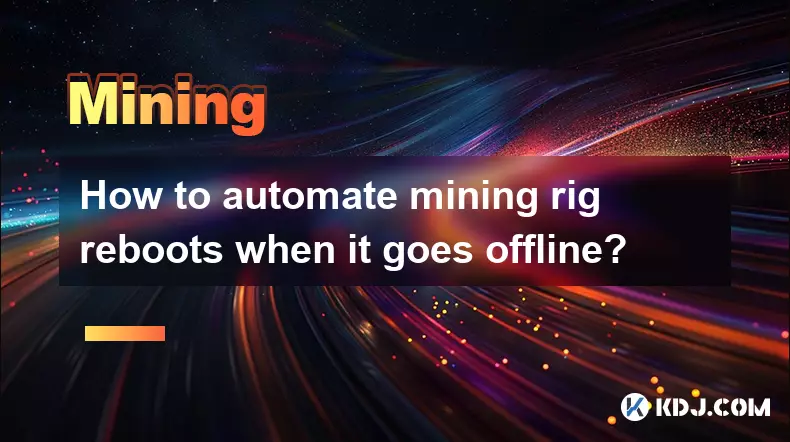
How to automate mining rig reboots when it goes offline?
Jan 23,2026 at 11:00pm
Monitoring System Integration1. Deploy a lightweight agent on the mining rig’s host OS that continuously reports hash rate, GPU temperature, and pool ...
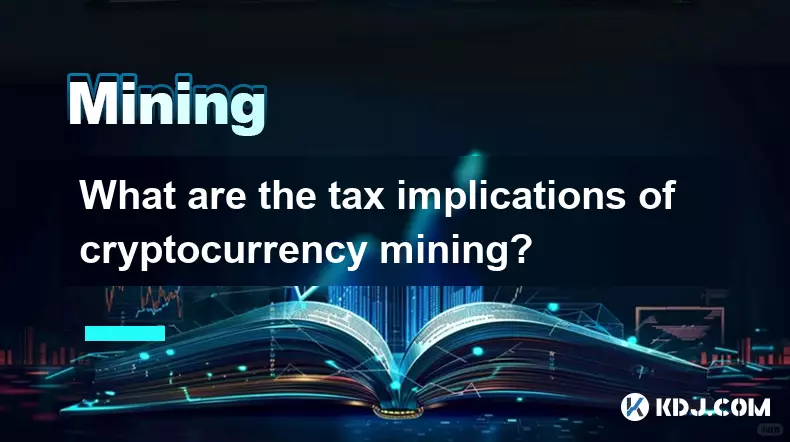
What are the tax implications of cryptocurrency mining?
Jan 23,2026 at 02:40am
Tax Treatment of Mining Rewards1. Cryptocurrency received as a reward for mining is treated as ordinary income by the IRS at the fair market value on ...
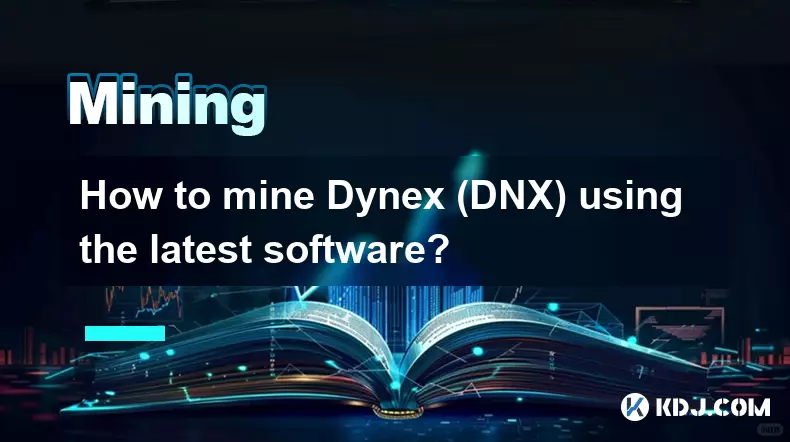
How to mine Dynex (DNX) using the latest software?
Jan 22,2026 at 10:00am
Understanding Dynex Mining Fundamentals1. Dynex (DNX) operates on a proof-of-work consensus mechanism optimized for neuromorphic computing workloads, ...
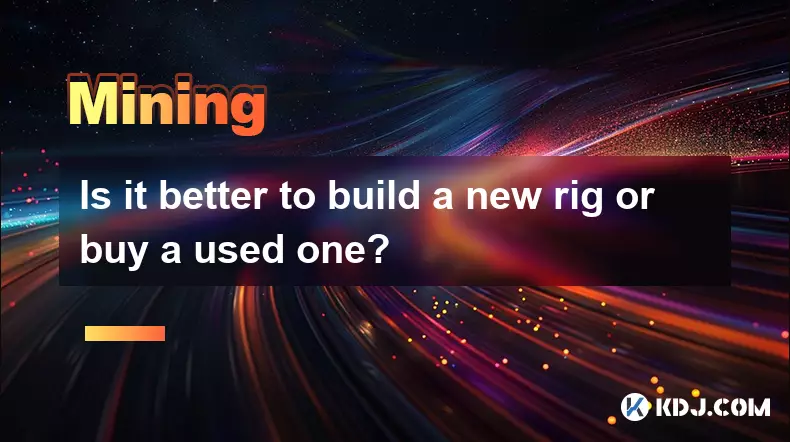
Is it better to build a new rig or buy a used one?
Jan 24,2026 at 10:20pm
Cost Efficiency Analysis1. New mining rigs come with manufacturer warranties, typically covering components for one to three years. This assurance red...
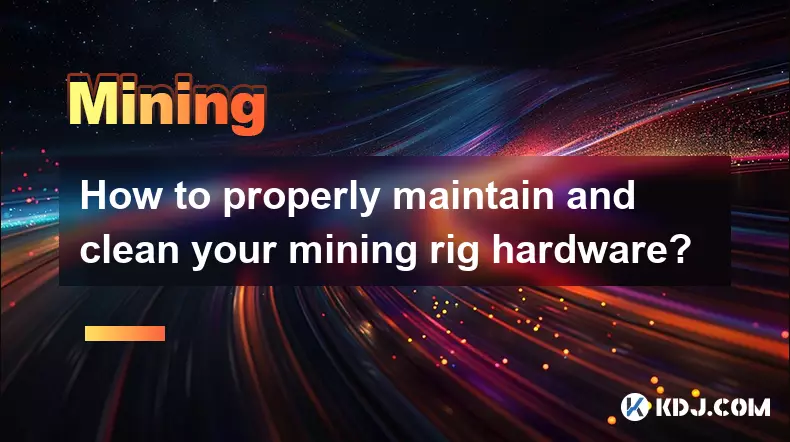
How to properly maintain and clean your mining rig hardware?
Jan 19,2026 at 11:00am
Cooling System Inspection and Optimization1. Dust accumulation inside fans and heatsinks directly reduces thermal dissipation efficiency, leading to h...
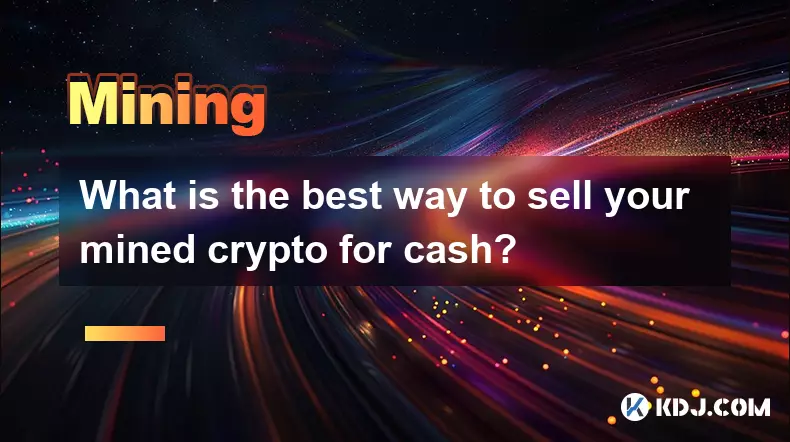
What is the best way to sell your mined crypto for cash?
Jan 20,2026 at 02:59am
Choosing the Right Exchange Platform1. Select an exchange with strong regulatory compliance and a proven track record of secure withdrawals. Platforms...

How to automate mining rig reboots when it goes offline?
Jan 23,2026 at 11:00pm
Monitoring System Integration1. Deploy a lightweight agent on the mining rig’s host OS that continuously reports hash rate, GPU temperature, and pool ...

What are the tax implications of cryptocurrency mining?
Jan 23,2026 at 02:40am
Tax Treatment of Mining Rewards1. Cryptocurrency received as a reward for mining is treated as ordinary income by the IRS at the fair market value on ...

How to mine Dynex (DNX) using the latest software?
Jan 22,2026 at 10:00am
Understanding Dynex Mining Fundamentals1. Dynex (DNX) operates on a proof-of-work consensus mechanism optimized for neuromorphic computing workloads, ...

Is it better to build a new rig or buy a used one?
Jan 24,2026 at 10:20pm
Cost Efficiency Analysis1. New mining rigs come with manufacturer warranties, typically covering components for one to three years. This assurance red...

How to properly maintain and clean your mining rig hardware?
Jan 19,2026 at 11:00am
Cooling System Inspection and Optimization1. Dust accumulation inside fans and heatsinks directly reduces thermal dissipation efficiency, leading to h...

What is the best way to sell your mined crypto for cash?
Jan 20,2026 at 02:59am
Choosing the Right Exchange Platform1. Select an exchange with strong regulatory compliance and a proven track record of secure withdrawals. Platforms...
See all articles





















![Ultra Paracosm by IlIRuLaSIlI [3 coin] | Easy demon | Geometry dash Ultra Paracosm by IlIRuLaSIlI [3 coin] | Easy demon | Geometry dash](/uploads/2026/01/31/cryptocurrencies-news/videos/origin_697d592372464_image_500_375.webp)




















































